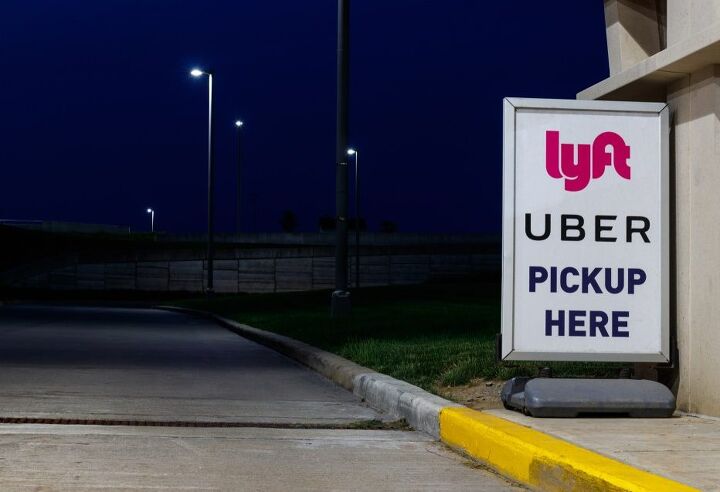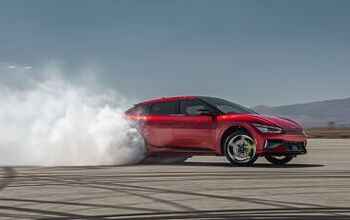Uber Considers Franchise Model After California Cracks Down on Contractors

California took on the gig economy by passing updated labor laws (Assembly Bill 5) mandating companies treat contractors more like regular employees. Some predicted this would be the death knell for ride-hailing firms like Uber and Lyft, who are entirely dependent on them for their daily operations. Worse still, these companies remain unprofitable despite most of the the physical expenses being pushed onto drivers — who remain responsible for the upkeep of their own vehicles after receiving their cut of the fare.
Earlier this month, Uber CEO Dara Khosrowshahi published an op-ed in The New York Times suggesting contractors deserved better, but current circumstances dictated that the situation remain largely unchanged. He later suggested the service might have to leave California as it restructured its business model to appease new rules, saying it had to reclassify drivers as employees with all the accompanying benefits (paid leave, minimum wage, unemployment insurance, etc). San Francisco Superior Court Judge Ethan P. Schulman said that would be fine last week when he ruled that Uber and Lyft drivers were essential to operations and could not be treated as tangential to the business. He wanted to be absolutely clear that exemptions would not be made for ride-hailing firms, stating that it was “high time that they face up to their responsibilities to their workers and to the public.”
Uber lost $8.5 billion in 2019, making it difficult to envision a future where it can begin offering more to its drivers. But it also doesn’t want to lose out on market share as the industry jockeys for position. There needs to be another solution.
What about moving to a franchise model?
Reporting from Bloomberg and The New York Times both suggest the matter is being considered by Uber’s top brass. Licensing the brand to independent operators would create a legal buffer zone between itself and drivers, potentially avoiding any illegalities without having to classify them as fully fledged employees.
From Bloomberg:
Uber said the model would look similar to its black-car operations in the early days. “Drivers would likely earn a predetermined hourly wage for their time on-app, but in exchange, fleets would likely monitor and enforce drivers’ activity and efficiency, for instance by putting drivers into shifts, dictating where and when they drive, and enforcing trip acceptance criteria,” Matt Wing, a spokesman for Uber, wrote in an email. “We are not sure whether a fleet model would ultimately be viable in California.”
The internal discussions were reported earlier Tuesday by the New York Times. The newspaper also said Lyft was exploring a similar model. A spokeswoman for Lyft said the company has looked at “alternative models” but declined to comment on the deliberations.
Some changes have already been made. Uber previously gave drivers more autonomy in how they operate their end of the bargain in a bid to make it clear they’re contractors. But, since the contractors don’t get to set their own rates, it’s unlikely the courts would side with the company — and not just in California. While drivers take advantage of the platform to find customers, Uber sets the fares and decides how much to give back.
Frankly, this is an issue the gig economy has come up against across the board, with many accusing various businesses of using contracting as a predatory tactic to low ball employees into working for less without benefits. It’s also taken heat for giving some businesses an alleged unfair advantage by not compensating employees as much others in better accordance with the law. We’ve seen legal suits springing up as part of a national backlash, too.
Despite these looking like a major victory for workers, serious problems could arise in the short term. Many fear that companies will simply pull up stakes in markets like California, as Uber has suggested. Transitioning to a franchise model would undoubtedly increase pricing and probably limit the areas Uber could realistically service.
[Image: Jonathan Weiss/Shutterstock]

A staunch consumer advocate tracking industry trends and regulation. Before joining TTAC, Matt spent a decade working for marketing and research firms based in NYC. Clients included several of the world’s largest automakers, global tire brands, and aftermarket part suppliers. Dissatisfied with the corporate world and resentful of having to wear suits everyday, he pivoted to writing about cars. Since then, that man has become an ardent supporter of the right-to-repair movement, been interviewed on the auto industry by national radio broadcasts, driven more rental cars than anyone ever should, participated in amateur rallying events, and received the requisite minimum training as sanctioned by the SCCA. Handy with a wrench, Matt grew up surrounded by Detroit auto workers and managed to get a pizza delivery job before he was legally eligible. He later found himself driving box trucks through Manhattan, guaranteeing future sympathy for actual truckers. He continues to conduct research pertaining to the automotive sector as an independent contractor and has since moved back to his native Michigan, closer to where the cars are born. A contrarian, Matt claims to prefer understeer — stating that front and all-wheel drive vehicles cater best to his driving style.
More by Matt Posky
Latest Car Reviews
Read moreLatest Product Reviews
Read moreRecent Comments
- Verbal Rented a Malibu a while back. It was fine, if a bit gutless.I get that Detroit wants to go all-in on high profit margin SUVs and blinged-out MAGA trucks. Everyone has known for decades that they can't compete on price in the affordable sedan space. So now all of Detroit's sedans are gone except for a couple of Cadillac models.But you'd think that just one of the domestic brands could produce a fun, competitive and affordable sedan. Just one? Please? Anyone? Bueller?
- 3-On-The-Tree I wouldn’t even use Ford as a hearse for fear of being late to my party.
- SCE to AUX Norway is in Europe, and Tesla is an American automaker - no problems there.I wouldn't use Ford as the bellwether.https://www.reuters.com/business/autos-transportation/tesla-extends-lead-norway-evs-take-record-82-market-share-2024-01-02/https://elbil.no/english/norwegian-ev-policy/
- Steve Biro If the U.S. government wants to talk about banning all connected cars - or at least the collection and sharing of information from said vehicles - I’m all ears. Otherwise, don’t waste my time.
- Ajla Both parties are in favor of banning Chinese vehicles so I don't see how it won't happen in the next year.


































Comments
Join the conversation
I have owned a franchise and I can tell you this - in many, many cases the whole thing depends on minimum wage employees, who then seek assistance through SNAP and government subsidized health care. Gov spending is essential to keep the whole thing afloat.
You call a taxi and you don't know what it's going to cost. You call an Uber and you get a pretty good idea of the cost. Yet-Many business here where I am located pay a minimum of $15.00 an hour to start-$18.00 if you stay. A better wage (by most examples) than what you make as an Uber/Lyft driver-after auto expenses. But the ride share companies are not making any money. The whole situation seems odd.